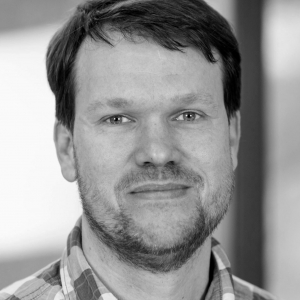Richárd Bártfai
Radboud University Nijmegen
Molecular Biology
Supervisor ESR 14
r.bartfai@science.ru.nl
Research Interests
We are interested in gene regulatory mechanisms that control development and enables adaptation of malaria parasites. Our group is one of the pioneers of the malaria epigenomics field.
Malaria, caused by eukaryotic parasites of the Plasmodium genus, claims the lives of about half a million people every year, the majority of whom are children or pregnant women. Accumulating evidence suggests that chromatin-based regulatory mechanisms are central to the survival, adaptation and pathogenesis of the parasite. Although epigenetic mechanisms unique to the parasite could also provide potential targets for drug-based intervention, we know very little about these processes. Our group aims to decipher transcriptional and epigenetic mechanisms that govern the development of P. falciparum in its human host or enables its phenotypic variation. We use state-of-the-art genomic (e.g. ChIP-seq, MNase-seq, ATAC-seq, single-cell RNA-seq) and quantitative proteomic approaches (e.g. BioID, IP-MS) to collect highly informative data about the epigenome, transcriptome and proteome of the parasite. Integrative analysis of these datasets together with complementary sets of biochemical and functional experiments will provide important insights into the biology of this deadly pathogen and clues for the development of new intervention strategies.
Keyword & Model Systems
Chromatin, epigenetics, adaptation, single-cell biology, malaria,
Plasmodium
Scientific CV
| Year | Function | Institution |
|---|---|---|
| since 2017 | Assistant Professor | Department of Molecular Biology, Radboud University, Nijmegen, the Netherlands |
| 2012 – 2017 | Tenure-track group leader | Department of Molecular Biology, Radboud University, Nijmegen, the Netherlands |
| 2007 – 2012 | Postdoctoral Fellow | Nijmegen Center for Molecular Life Sciences, Nijmegen, The Netherlands |
| 2000 – 2006 | PhD | Temasek Life Sciences Laboratory, National University of Singapore, Singapore |
| 1993 – 1998 | Master of Sciences | Szent-István University, Gödöllő, Hungary |
This project has received funding from the European Union’s Horizon 2020 Research and Innovation programme under the Marie Skłodowska-Curie grant number 860675.


